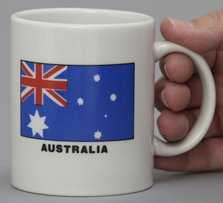Share your coffee stories with us by writing to info@comunicaffe.com.
Is Australia kicking the caffeine habit? In the last decade, the average coffee consumption by Australian adults has declined slowly but steadily, from 10.5 cups to 9.2 cups per week.
Or could we just be drinking a stronger brew, thus reducing the need for so many cups? After all, café visitation is on the rise, as is ownership of coffee-making machines.
The proportion of Australians aged 18+ who go to a café for a coffee or tea in an average three-month period has grown gradually from 54% in the 12 months to December 2009 to 56% in the year to December 2013.
Meanwhile, the increase in people who own coffee makers has shot up, from 28% in 2009 to 36% in 2013.
Among Australia’s biggest coffee drinkers are people who work long hours. In the year to December 2013, those who worked 60+ hours in any given week consumed an average 10.1 cups weekly, compared to 8.6 for non-workers or 8.8 for those who worked 35-39 hours.
In news that probably won’t surprise the parents out there, it seems that having children also increases our need for caffeine. Whereas the average weekly coffee consumption for people who don’t have kids is 7.2 cups, it rises to 9.6 cups for parents.
Kids and caffeine: average weekly coffee consumption of Australian parents (clik to enlarge)
Perhaps a little more surprising is that consumption increases with the age of the kids. So while parents of infants under two years old actually drink less coffee (8.8 cups per week) than the national average, those with kids aged between 12 and 15 drink an average of 10.3 cups. The rise of the home coffee maker Even though it’s hard to imagine when they’d get time to use it, since they work such long hours, people who work 60+ hours per week are significantly more likely than the average Aussie to have a coffee maker at home, with 44% of them owning one (up from 38% in the year to December 2009).
People with kids also over-index on coffee-maker ownership at 39%, up from 32% in 2009
Angela Smith, Group Account Manager — Consumer Products, Roy Morgan Research, says: “The increased presence of coffee makers — which can be anything from stovetop cafetières to ‘pod’ machines such as Nespresso and Expressi — in Australian households is good news for the manufacturers of these items.
Interestingly, it hasn’t impacted adversely on café visitation: possibly because people are developing a taste for ‘real’ coffee over instant.
“While it makes sense that people who work long hours would consume more coffee, their need for caffeine goes beyond this, to the point where they also drink more Cola and energy drinks than people who work fewer hours.
“The news that parents of older children drink more coffee in an average week than those of infants may seem surprising, considering the stereotype of the sleep-deprived new parent, but this is simply a function of age. Our data shows that older people drink more coffee, and parents of older children are typically older than those of infants.
Mind you, their extra caffeine requirements might also be linked to the sleep they lose through lying awake at night, worrying about where their kids are or what they’re up to on Snapchat…!”
Roy Morgan Research
Roy Morgan Research is Australia’s best known and longest established market research and public opinion survey company.
Roy Morgan Single Source is thorough, accurate, and provides comprehensive, directly applicable information about current and future customers. It is unique in that it directs all the questions to each individual from a base survey sample of around 55,000 interviews in Australia and 15,000 interviews in New Zealand annually -the largest Single Source databases in the world.
The questions asked relate to lifestyle and attitudes, media consumption habits (including TV, radio, newspapers, magazines, cinema, catalogues, pay TV and the Internet), brand and product usage, purchase intentions, retail visitations, service provider preferences, financial information and recreation and leisure activities.
This lead product is supported by a nationally networked, consultancy-orientated market research capability.
Source: press release
















